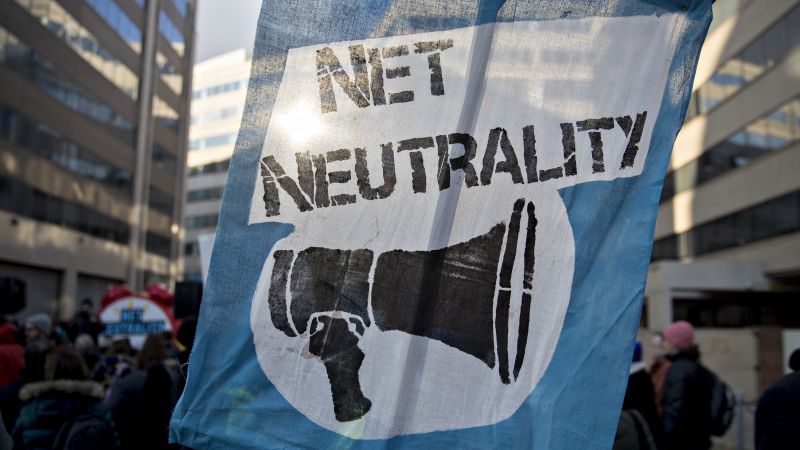
Net neutrality is back as FCC votes to regulate internet providers
CNN
The US government on Thursday banned internet service providers (ISPs) from meddling in the speeds their customers receive when browsing the web and downloading files, restoring tough rules rescinded during the Trump administration and setting the stage for a major legal battle with the broadband industry.
The US government on Thursday banned internet service providers (ISPs) from meddling in the speeds their customers receive when browsing the web and downloading files, restoring tough rules rescinded during the Trump administration and setting the stage for a major legal battle with the broadband industry. The net neutrality regulations adopted Thursday by the Federal Communications Commission prohibit providers such as AT&T, Comcast and Verizon from selectively speeding up, slowing down or blocking users’ internet traffic. They largely reflect rules passed by a prior FCC in 2015 and unwound in 2017. The latest rules show how, with a 3-2 Democratic majority, the FCC is moving to reassert its authority over an industry that powers the modern digital economy, touching everything from education to health care and enabling advanced technologies such as artificial intelligence. With Thursday’s party-line vote, the FCC redefined internet service as similar to legacy telephone lines, a sweeping move that comes with greater regulatory power over the broadband industry. And for the first time, the FCC said it would step in to override state or local policies that conflict with the federal net neutrality rule. Leading FCC officials have said restoring net neutrality rules, and reclassifying ISPs under Title II of the agency’s congressional charter, would provide the FCC with clearer authority to adopt future rules governing everything from public safety to national security. Some of the issues the FCC will be further empowered to address after the change include spam robotexts, internet outages, digital privacy and expanding high-speed internet access, FCC Chairwoman Jessica Rosenworcel said when she first announced the proposal in September.

Global stock markets have largely shrugged off President Donald Trump’s renewed tariff campaign. In commodities markets, however, tariff threats have sent the price of copper soaring to all-time highs — signaling the potential for higher tariff-induced prices for a metal with critical uses across the US economy.

This past April, when President Donald Trump started flirting with the notion of firing Fed Chair Jerome Powell, stocks and the dollar tumbled because investors worried that even talking about such a move crossed a red line. You can’t even joke about that, the Wall Street intellectuals told us — the central bank’s independence is simply too important.





















 Run 3 Space | Play Space Running Game
Run 3 Space | Play Space Running Game Traffic Jam 3D | Online Racing Game
Traffic Jam 3D | Online Racing Game Duck Hunt | Play Old Classic Game
Duck Hunt | Play Old Classic Game









